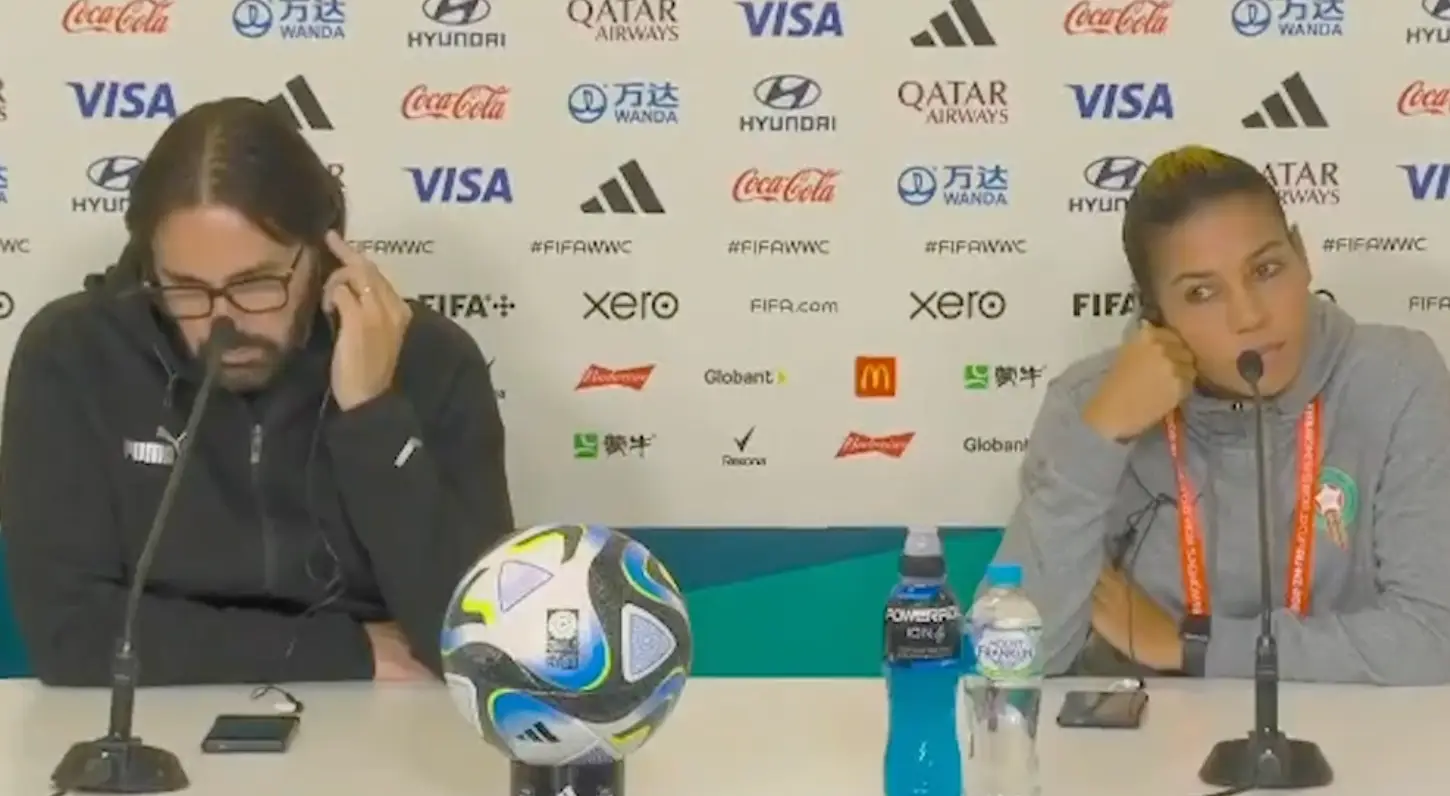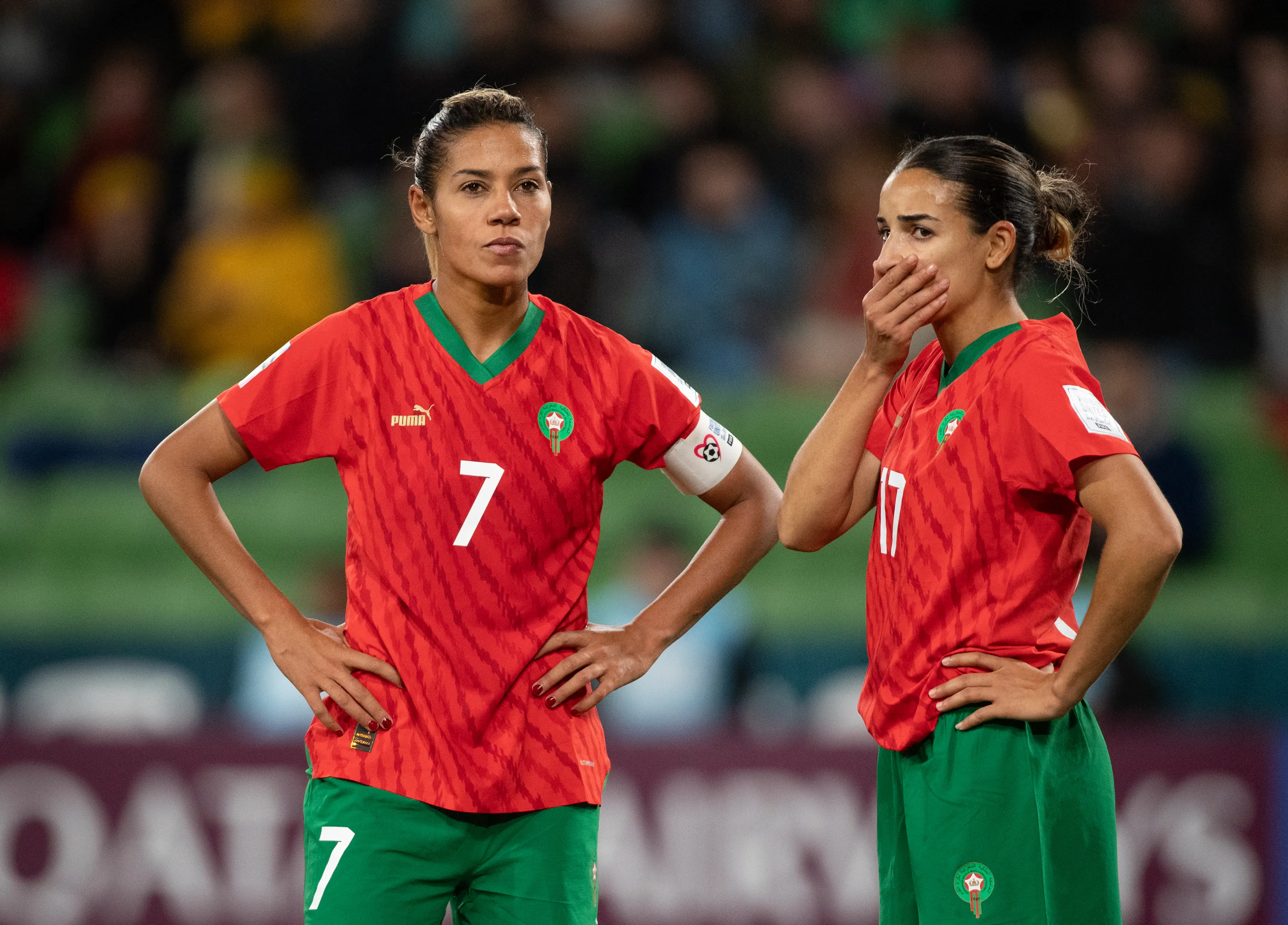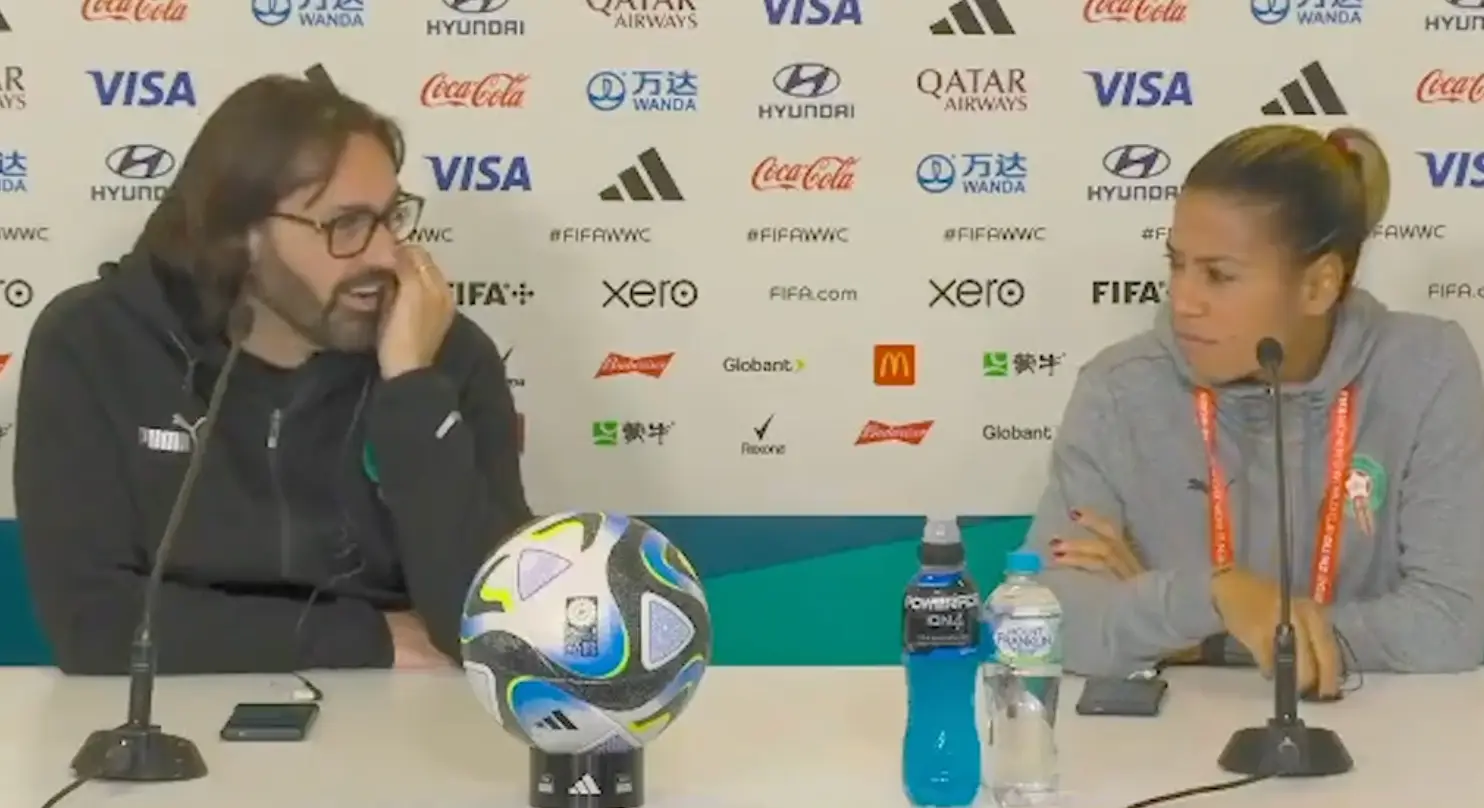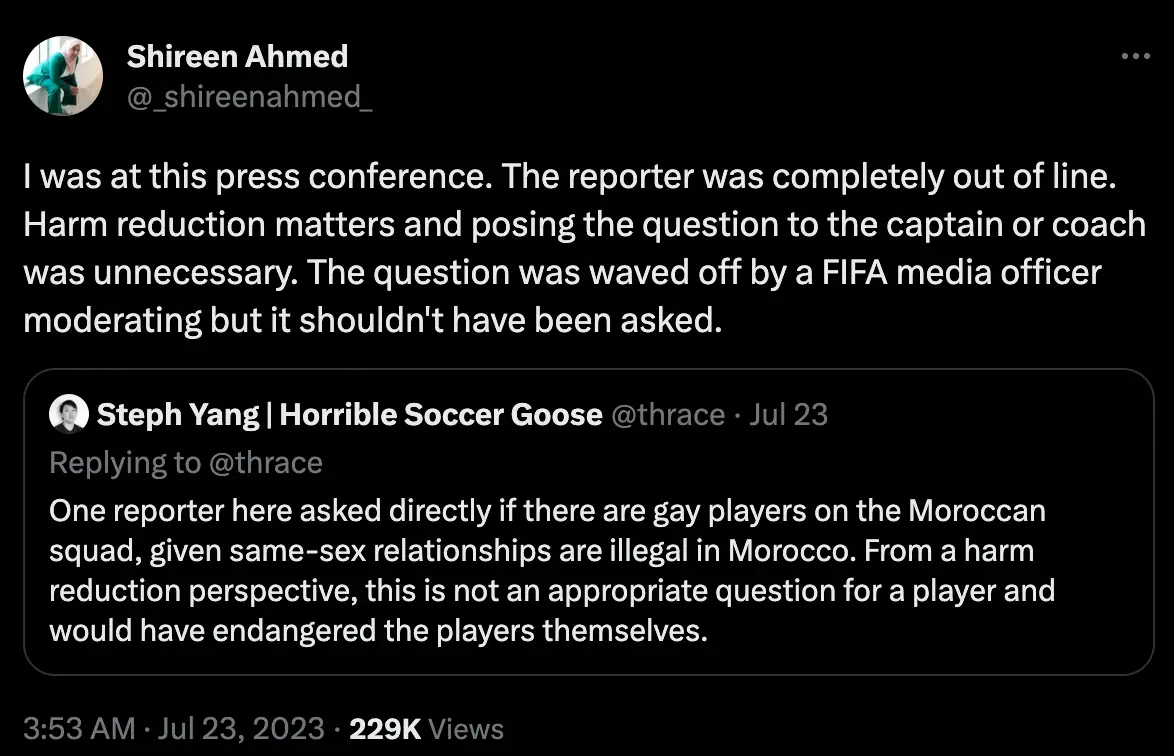The BBC has apologised after facing backlash online for asking a 'very political' question to Morocco's captain at the Women's World Cup.
The FIFA Women's World Cup began on 20 July and it didn't take long for things to start kicking off the pitch as well as on it.
Ahead of Morocco's match against Germany, a media press conference saw a BBC reporter ask Moroccan player and captain Ghizlane Chebbak an 'inappropriate' question.
Advert

The BBC journalist said: "In Morocco it is illegal to have a gay relationship. Do you have any gay players in your squad and what’s life like for them in Morocco?"
The question was quickly interjected by the press conference moderator who called it 'very political' and told the reporter to 'stick to questions relating to football'.
"No, it's not political," the BBC reported rebutted. "It's about people, it's got nothing to do with politics. Please let her answer the question."
Chebbak responded to the ordeal with a look of distain before removing her earpiece and having a giggle while shaking her head.
And the BBC has faced severe backlash online for the question.

Athletics's Steph Yang took to Twitter to write: "One reporter here asked directly if there are gay players on the Moroccan squad, given same-sex relationships are illegal in Morocco.
"From a harm reduction perspective, this is not an appropriate question for a player and would have endangered the players themselves.
"We are obviously going to talk about the intersection of politics and sports at this World Cup, and it's vital to do so. But we should take care that our questions don't cause further harm to those impacted by those very politics."

CBC Sports journalist Shireen Ahmed says she was at the press conference when the question was asked.
She condemned the reporter for being 'completely out of line' and stressed how much 'harm reduction matters,' calling it 'unnecessary' for the BBC journalist to have posed the question to the captain.
Ahmed's tweet continues: "The question was waved off by a FIFA media officer moderating but it shouldn't have been asked. Asking a player about her teammates and whether they are gay and how it affects them when you know it is not permissible is bizarre and out of line.
"The captain can not out players nor comment on policy bc it could be dangerous for them, too."

Human Dignity Trust also said: "Same-sex sexual activity is prohibited under the Penal Code 1962, which criminalises ‘lewd or unnatural acts’. This provision carries a maximum penalty of three years’ imprisonment and a fine. Both men and women are criminalised under this law.
"[...] There is substantial evidence of the law being enforced in recent years, with LGBT people being frequently subject to arrest. Reports suggest that hundreds of prosecutions under the law have taken place in recent years. There have been consistent reports of discrimination and violence being committed against LGBT people in recent years, including assault, harassment, and societal marginalisation."
A spokesperson for the BBC told LADbible: "We recognise that the question was inappropriate. We had no intention to cause any harm or distress."
LADbible has contacted FIFA and Moroccan Football Federation for comment.
Topics: Football, Sport, BBC, TV and Film, World News